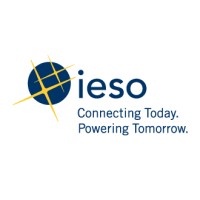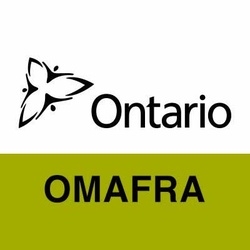
Closed
Food Safety and Growth Initiative
Last Update: November 28, 2025
ON, Canada
Enhance food safety systems, adopt new technologies, and drive sector growth
Grant and Funding
At a glance
Funding available
Financing goals
Integrate new technologies
Renovate your business/factory
Develop employee skills
See more
Eligible Funding
- Maximum amount : 75,000 $
- Up to 50% of project cost
Timeline
- Open Date : August 21, 2024
- Closing date : December 1, 2025
Eligible candidates
Eligible Industries
- Agriculture, forestry, fishing and hunting
- Manufacturing
- Wholesale trade
- Transportation and warehousing
- Professional, scientific and technical services
Location
- Ontario
Legal structures
- For-profit business
- Sole proprietorship
Annual revenue
- All revenue ranges
Organisation size
- 100 employees maximum
Audience
- Canadians
Overview
The Food Safety and Growth Initiative aims to support small agri-food businesses in modernizing food safety systems and adopting new food safety and traceability technologies. Eligible activities include third-party assessments for actionable food safety improvements, equipment and technology upgrades for monitoring and hazard reduction, and the development or improvement of food safety or traceability programs. Funding covers 50% of eligible costs up to a maximum of $75,000 per project.
Activities funded
- Modernizing food safety systems within agri-food facilities.
- Adopting new food safety or traceability equipment and technologies.
- Assessing and addressing food safety or traceability risks through third-party evaluations.
- Developing or enhancing food safety and traceability programs to achieve higher standards or certification.
- Implementing nationally or internationally recognized food safety programs, including obtaining first-time certification audits.
Eligibility
- The applicant must be a Primary Producer, Processor, or Service Provider involved in producing, processing, or handling eligible food products at their project location.
- The business must have fewer than 100 employees at the project location.
- The project must be related to modernization or improvement of food safety systems or traceability, as outlined in the program guidelines.
- The applicant must comply with all environmental, labour, and tax-related requirements of law for their business operations.
- The applicant must submit a completed, ministry-approved application form with all required documentation.
Who is eligible?
- Small primary producers involved in eligible crop or livestock production, including controlled environment agriculture and fruit tree nurseries
- Slaughterhouses and abattoirs
- Agri-food processors (excluding pet food, fertilizer, bio-processing, and waste companies)
- Packing houses for food products
- Service providers offering cold storage, food distribution, direct food contact packaging manufacturing, or laboratory services to eligible producers or processors
Who is not eligible
- Companies engaged in aquaponic food production, aquaculture, seaweed, fish, or seafood production and processing.
- Commissaries (such as ready-to-eat counters), brewpubs, brand owners, pet food manufacturers, fertilizer manufacturers, bio-processing companies (food or industrial), and food/agricultural commodity or bioprocessor waste companies.
- Businesses that do not handle or process the specified eligible food products listed in the program guidelines.
- Primary producers who are solely landowners, renters, or employers providing housing to international agricultural workers, without active production activities.
- Applicants unable to identify an appropriate NAICS code from the guideline's appendix that matches their core business activity.
Eligible expenses
- Purchase and installation of equipment and technology upgrades for food safety monitoring, surveillance, data collection, lab testing, and analysis.
- Material and equipment costs, including pre-owned equipment from a licensed seller, as well as equipment rental or service fees related to food safety improvements.
- Salaries and wages for employees working directly on the project (pro-rated if not fully dedicated).
- Third-party assessment, gap analysis, consulting, audit, or expert fees for identifying or implementing food safety or traceability improvements.
- Development or improvement of food safety or traceability programs, including documentation, procedures, and action plans.
- Initial costs for barcode or automated product identification systems (including one-time company prefix license, initial activation, and national product registry registration, limited to 6 months).
- Costs for training related to new equipment, technology upgrades, or food safety systems, including vendor-provided or third-party training.
- Costs for supporting or managing information sharing networks (e.g. cloud-based subscription services or dedicated project staff) that directly support a new food safety or traceability process, limited to 6 months.
- Structural modifications necessary for implementing eligible equipment, technology upgrades, or written programs.
- Third-party course, training, and materials costs for food safety or traceability (from colleges, universities, program owners, accredited bodies, or qualified industry organizations).
- For Primary Producers only: in-kind costs for unpaid labour and use of own farm equipment (within specified hourly rates and limits).
Eligible geographic areas
- Ontario
Selection criteria
- Clear demonstration of project needs and benefits, specifically how the project will improve food safety and/or traceability and control risks.
- Integration of multiple components of the food safety/traceability system at the project location (e.g., equipment, training, control procedures).
- Pursuit of improvements toward achieving national or international food safety program standards and/or certification.
- Stimulation of related business growth, such as access to new markets or customers, increased production output, or improved inventory management.
How to apply
1
Application Form Submission
- Download and fill out the Ministry-approved Application Form using Adobe Acrobat Reader.
- Ensure the Application Form is fully completed to avoid resubmission.
2
Attach Required Documents
- Obtain written quotes from third parties providing goods or services to support the proposed Eligible Costs.
- Include a site sketch if structural modifications are part of the project.
- Provide a course outline detailing training to be provided with cost summary, if applicable.
3
Submission by Email
- Send the completed Application Form along with the required documents to SustainableCAP1@ontario.ca.
- Make sure to submit your application between August 21, 2024, and December 1, 2025.
- Be mindful of the funding availability and ensure early submission to avoid missing out.
4
Waiting for Notification
- Wait for notification from the Ministry regarding approval or denial of your application.
- If successful, you will receive an Approval Letter via email outlining the project details and funding information.
- Unsuccessful applicants will be provided a brief explanation via email.
Additional information
- Applicants can have a maximum of two approved projects under this Initiative, requiring a separate application for each project.
- Applicants must retain all financial records related to Initiative Payments for seven years after funds are received.
- Applicants must report any potential merger or acquisition discussions within five business days to the Ministry during their participation in the Initiative.
- Any Initiative Payment received is considered income for tax purposes under the Income Tax Act (Canada).
Contacts
SustainableCAP1@ontario.ca
ON, Canada
Apply to this program
Frequently Asked Questions about the Food Safety and Growth Initiative Program
Here are answers to the most common questions about the Food Safety and Growth Initiative. This section explains what the program is, how much funding is available, eligibility requirements, application deadlines, and other important details to help you determine if this grant is right for your business.
What is the Food Safety and Growth Initiative?
How much funding can be received?
What is the deadline to apply?
Who is eligible for the Food Safety and Growth Initiative program?
What expenses are eligible under Food Safety and Growth Initiative?
Who can I contact for more information about the Food Safety and Growth Initiative?
Where is the Food Safety and Growth Initiative available?
Apply to this program
More programs like this

Tax CreditsOpen
Ontario Innovation Tax Credit (OITC)
Ontario Ministry of FinanceRefundable tax credit for R&D in Ontario

Grant and FundingClosed
ISDE — Advanced technologies for open-source intelligence due diligence
Innovation, Science and Economic Development Canada (ISED)AI solutions for research security and open-source intelligence advancement

Grant and FundingExpert AdviceOpen
Expanded Energy Management Program
Independent Electricity System Operator (IESO)Funding to strengthen facility energy management and efficiency initiatives

Grant and FundingClosed
REGI — Business Scale-up and Productivity (BSP) - Northern Ontario
Government of CanadaFunds to accelerate business growth in Northern Ontario

Expert AdviceOpen
Ontario Food Exports — Services for Exporters
Government of OntarioFood and beverage industry export help in Ontario

Grant and FundingOpen
FedNor — Regional Tariff Response Initiative
Federal Economic Development Agency for Northern Ontario (FedNor)Supports Northern Ontario SMEs affected by international trade tariffs

Grant and FundingOpen
Regional Artificial Intelligence Initiative (RAII) for Northern Ontario
Federal Economic Development Agency for Northern Ontario (FedNor)Funding AI commercialization and adoption in Northern Ontario businesses

Grant and FundingClosed
INVEST North Program — Investment — Grow Stream
Government of OntarioFinancial help to grow a business in Northern Ontario

Grant and FundingOpen
OCI — Digital Modernization and Adoption Plan program (DMAP)
Government of OntarioSupport for digital modernization for SMEs in Ontario

Wage Subsidies And InternsOpen
Elevate Talent
Elevate TalentPool of underrepresented talent in the Greater Toronto and Hamilton area
Sign up to our platform to access the Food Safety and Growth Initiative information sheet for free
Get access to 4,000+ programs, practical guides, personalized alerts, and an AI assistant to support your grant applications.